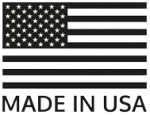What Is an Overdenture Bar and Why Does It Matter?
If you’ve ever wondered how people with missing teeth get that stable, confident smile again — the secret often lies in the implant overdenture bar. It’s a custom-made metal bar that connects to dental implants in your jaw and helps hold your denture in place. This bar acts like a bridge between your mouth and your prosthetic teeth, giving you more comfort and functionality than traditional dentures.
Why do people love it? Because it doesn’t move around like regular dentures. The bar helps evenly distribute chewing forces and supports a natural-looking smile. Whether you’re dealing with a full arch replacement or just want something more reliable, implant overdenture bars are often the go-to solution.
Here’s what they offer:
- Better bite force and chewing comfort
- Increased denture stability
- More confidence during speech and eating
These benefits make implant overdenture bars a popular and life-changing option for many dental patients.
How Does an Implant Overdenture Bar Work?
Unlike conventional dentures that rest directly on the gums, a bar retained overdenture snaps onto a metal bar that’s securely fixed to two or more dental implants. This connection helps distribute bite forces evenly across the implants and jawbone, reducing pressure on the gums and increasing long-term comfort.
Because the implant overdenture bar is anchored to implants, the prosthesis stays in place during eating, talking, or laughing. That means no more awkward moments, no denture glue, and way less soreness. This design also allows for better force distribution and less bone loss over time — a win-win for both function and oral health. Cleveland Clinic confirms that implant-supported options provide better stability and support compared to traditional dentures.
Types of Bars: Milled vs Cast
Understanding your design options
When it comes to creating an implant overdenture bar, you’ve got two primary choices: milled or cast. Milled bars are made with advanced CAD/CAM technology, offering a high level of precision. These are created by digitally designing the bar and then milling it from a solid block of titanium or another strong material. This gives a more accurate fit and can be customized more easily for each patient.
Cast bars, on the other hand, are formed using traditional wax-up and metal casting techniques. While they’ve been used for decades and are still reliable, they don’t quite match the precision of milled options.
Quick comparison:
- Milled Bars: Superior fit, digitally designed, strong and lightweight
- Cast Bars: Time-tested, more affordable, but less precise
- Best For: Complex cases or when absolute fit is critical (milled); cost-conscious patients (cast)
Choosing the right type depends on your budget, clinical needs, and personal preferences.
Benefits of Bar-Supported Overdentures for Patients
Why choose bar-retained overdentures?
Patients who opt for implant overdenture bars often report a major improvement in their quality of life. One of the top benefits is stability — these bars help dentures stay in place when you’re talking, eating, or laughing. You can forget about the embarrassing moments caused by slipping dentures.
Plus, bar-retained overdentures are easier to clean and maintain compared to traditional options. The design allows for better hygiene and reduces the risk of sore spots in the mouth.
Patient-friendly benefits include:
- Boosted confidence in social settings
- Easier cleaning and maintenance
- Improved comfort and chewing ability
- More natural-looking aesthetics
Altogether, these advantages make bar-supported dentures a reliable, long-term solution for full-arch tooth replacement.
How Overdenture Bars Are Made in the Dental Lab
The fabrication process of an implant overdenture bar involves high-level dental technology and skilled lab technicians. First, the dentist takes digital impressions or scans of the patient’s mouth. These scans are then used to digitally plan the design of the bar, taking into account implant positions, tissue contours, and prosthetic needs.
Using CAD software, technicians model the ideal shape and orientation of the bar. After the design is finalized, the bar is milled from a titanium or cobalt-chrome blank using high-precision machinery. This ensures that the final bar fits perfectly and aligns correctly with the planned prosthetic. This digital workflow reduces human error and improves consistency across cases.
Compatibility with Different Prosthetic Options
One of the great things about the implant overdenture bar system is its versatility. It works with different types of prostheses depending on the patient’s needs and preferences. Most commonly, it supports removable overdentures, which snap onto the bar for stability but can be taken off for cleaning.
In more advanced cases, hybrid prosthetics can be used — these are screw-retained full-arch prostheses that are fixed onto the bar. They feel more like natural teeth and stay in place permanently, but still benefit from the stability and support the bar provides. Regardless of the approach, the bar design for edentulous patients can be customized to support tissue health, esthetics, and function.
Milled vs Cast Bars
| Feature | Milled Bars for Implants | Cast Bars |
| Manufacturing Process | CAD/CAM milling | Manual casting |
| Fit Accuracy | High precision | Variable, less consistent |
| Strength | Strong and durable | Less durable over time |
| Time Efficiency | Faster, more predictable | Longer turnaround |
| Customization | Fully customizable | Limited |
Choosing a Bar System That Works for You
The implant overdenture bar is a powerful solution that blends precision, comfort, and long-term stability. Whether you’re dealing with a full arch of missing teeth or just want a better alternative to traditional dentures, bar-supported options offer a life-changing improvement.
If you’re a dental professional looking for top-tier milled bars for implants, or a patient exploring your prosthetic options, it’s important to work with a lab that understands precision and esthetics.
Contact Bio-Dent today to learn more about bar design options for edentulous patients and see how high-quality digital fabrication can transform your next full-arch restoration.

